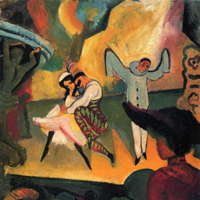 MET STARS: From 2002 until 2021 the late Maria Nockin reported from Arizona, mostly on live opera productions.
MET STARS: From 2002 until 2021 the late Maria Nockin reported from Arizona, mostly on live opera productions.
- John Stephen Carbonell
- Orkney
- Lena McLin
- Nicola Porpora
- prof
- J S Bach: cello suites
- Michel Merlet: Prélude-Interlude-Postlude
- Elizabeth Alker
 ROMANTICISM: Explore the late George Colerick's fascinating series of articles encroaching on the subjects of melody, romanticism, operetta and humour in music.
ROMANTICISM: Explore the late George Colerick's fascinating series of articles encroaching on the subjects of melody, romanticism, operetta and humour in music.

Clementi: Sonatas Op 1 & Op 1A
PCL10284 (Piano Classics, CD)
FIRST RELEASE (1 October 2023)
Playing time: 74'10"
Tracks: 23
Booklet pages: 7
℗ 2023 Piano Classics
© 2023 Piano Classics
Main country of recording: Italy
Country of manufacture: European Union
Reviewer: Geoff Pearce
Review of Clementi: Sonatas Op 1 & Op 1A published on 18 September 2023
Carlo Alberto Bacchi, piano
Muzio Clementi (1752-1832):
Sonatas Op 1
No 1 in E flat
1 Allegro con comodo
2 Tempo di Minuetto
No 2 in G
3 Spiritoso
4 Allegro assai
No 3 in B flat
5 Maestoso
6 Andantino grazioso
No 4 in F
7 Spiritoso
8 Larghetto
9 Rondeaux
No 5 in A
10 Larghetto
11 Tempo di Menuetto: Grazioso
No 6 in E
12 Moderato
13 Rondeau: Grazioso
Sonatas Op 1a
No 1 in F
14 Andante
15 'La Pantoufle' avec des Variations: Allegro
No 2 in B flat
16 Allegro moderato
17 Andantino grazioso
18 Air du Balet de Mirza avec des Variations: Allegro
No 3 in G
19 Allegretto
20 'Black Joke' air anglais avec des Variations: Allegro
No 4 in A
21 Larghetto
22 Tempo di Minuetto
No 5 in A minor
23 Allegro
While the sparkling music of Muzio Clementi (1752-1832) has been recorded by many celebrated pianists such as Arturo Benedetti Michelangeli, few of them have paid much attention to the composer's first published collection. This new recording by Carlo Alberto Bacchi is all the more welcome for being informed by his study of the composer's complete oeuvre as part of the 'Clementi Project' which sees him performing many of the sonatas in concert as well as recording them for Piano Classics. The inscription on Clementi's tomb in Westminster Abbey commemorates him as 'the father of the piano'. Clementi above all was responsible for devising a modern technique, of the kind still recognisable today, which would serve pianists on the larger instruments being manufactured in the early years of the nineteenth century. This technique is differentiated from harpsichord technique, and trained not just through lessons but through pianistic 'methods' and publications such as these sets of sonatas, which are arranged in order of progressive difficulty in order to introduce students to technical challenges step by step. Like Mozart, Clementi also manifested his musical talents at a very early age: at the age of seven, he was already studying organ, singing and counterpoint; he wrote a mass at the age of eleven and an oratorio at the age of twelve. The English nobleman and eccentric Sir Peter Beckford effectively bought the young Clementi on a seven-year contract and kept him at his West Country pile. When the contract with Beckford expired in 1774, Clementi moved to London and took off on a career that brought him fame across Europe - as a touring virtuoso, a teacher, publisher - and even sometimes composer. The six Op 1 sonatas were published in 1771, during Clementi's period in service to Beckford. Although he was not yet twenty and almost completely self-taught, they show his mastery of material and his irrepressible invention. All the sonatas have a simple, playful and light-hearted character, and a two-movement form. The five Sonatas of Opus 1a, on the other hand, date from a decade later, even after the Op 6 Sonatas. They were published in Paris around 1781, and here we sense the stirrings of Clementi as 'father of the piano' in the cascades and doublings and expanded imagination.
Recorded 30-31 May 2021 and 4 January 2022 at Auditorium Marco Tamburini, Conservatorio 'Venezze', Rovigo, Italy.

